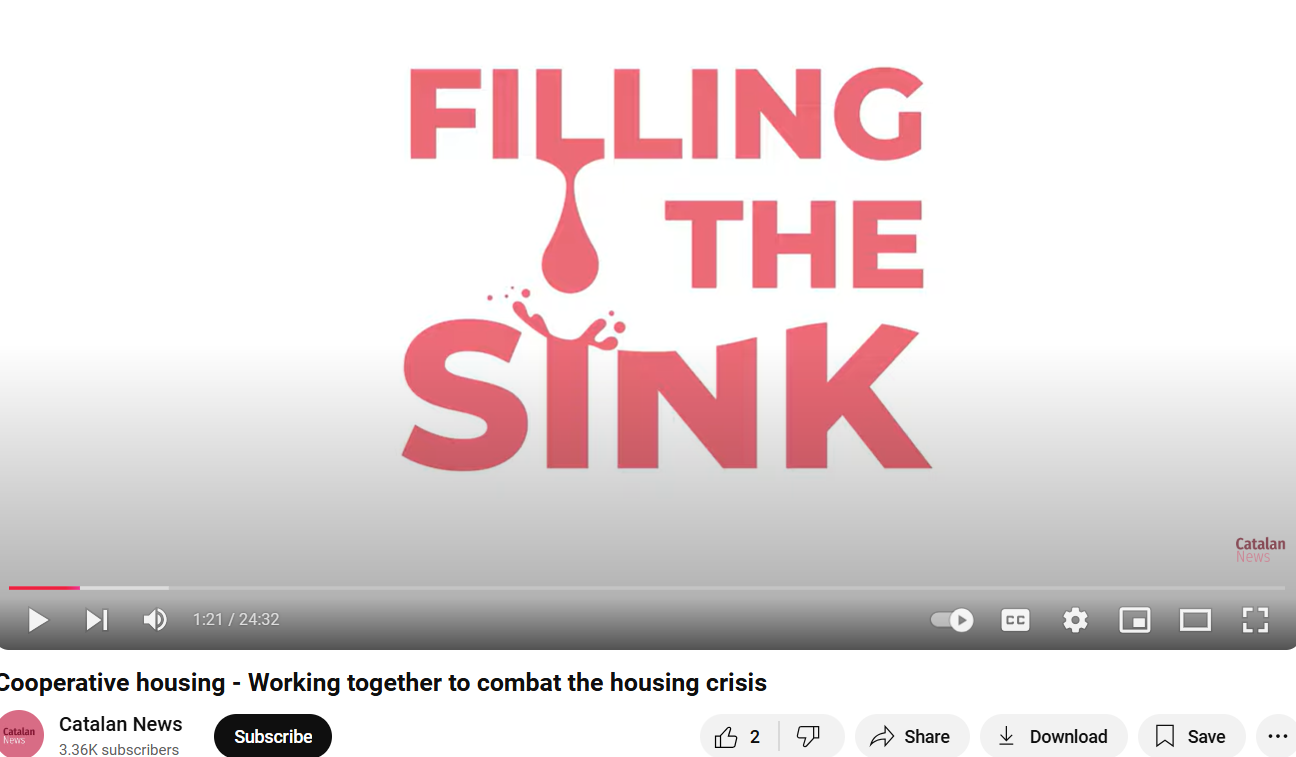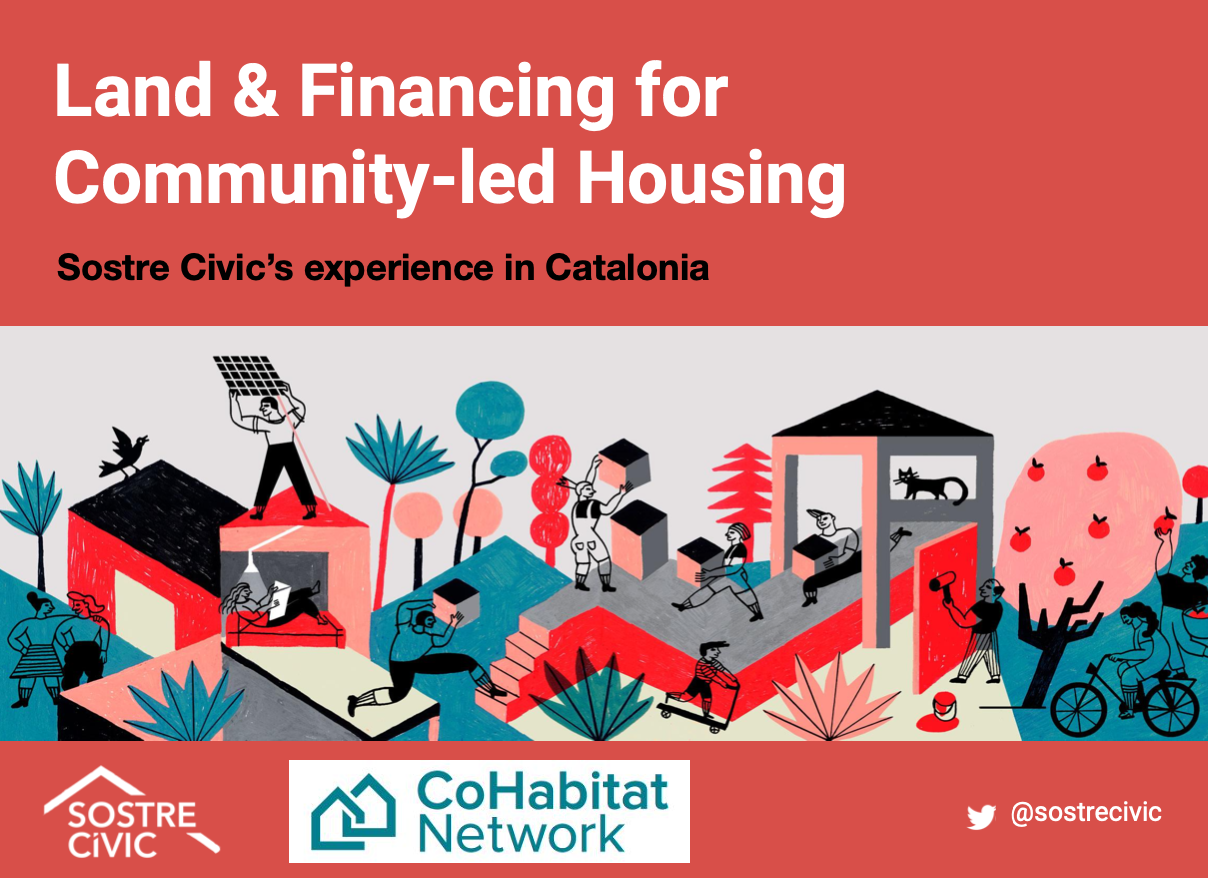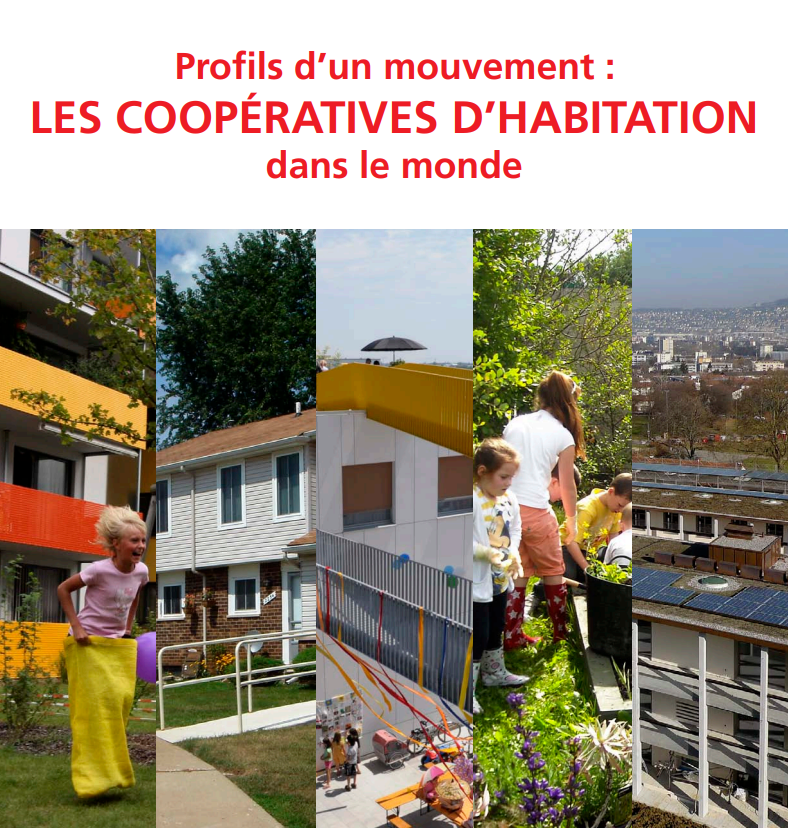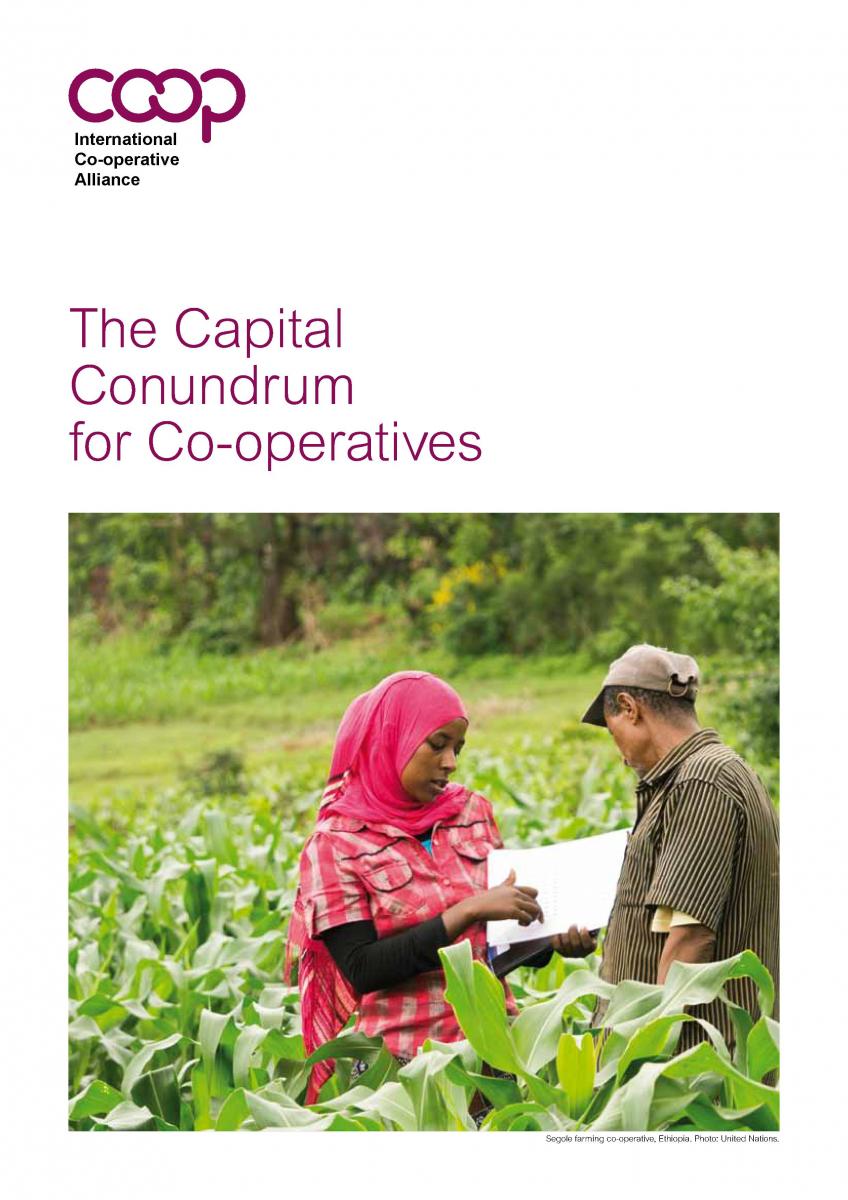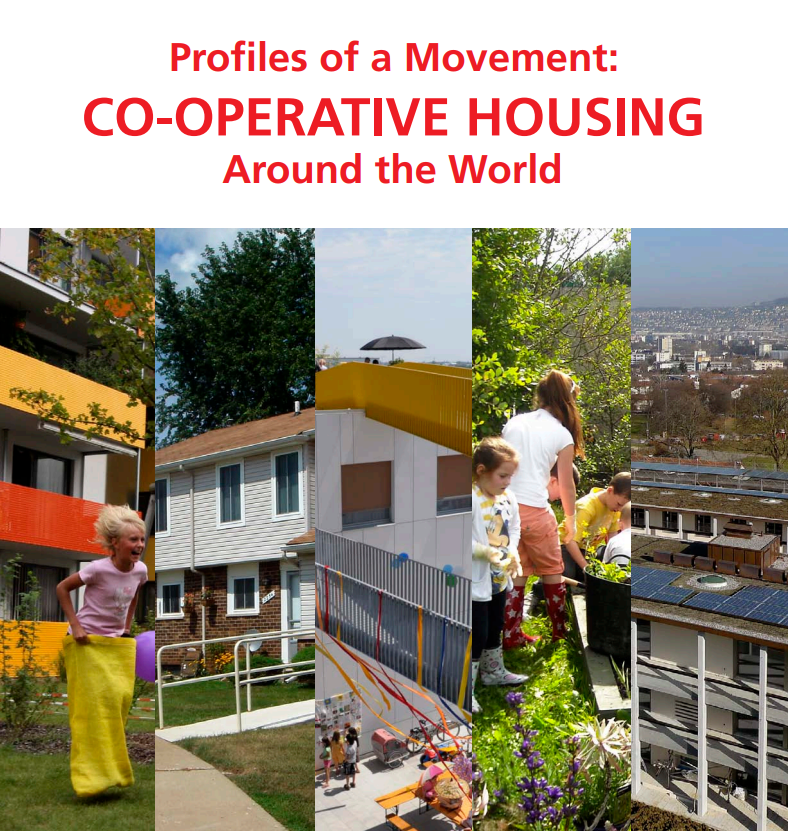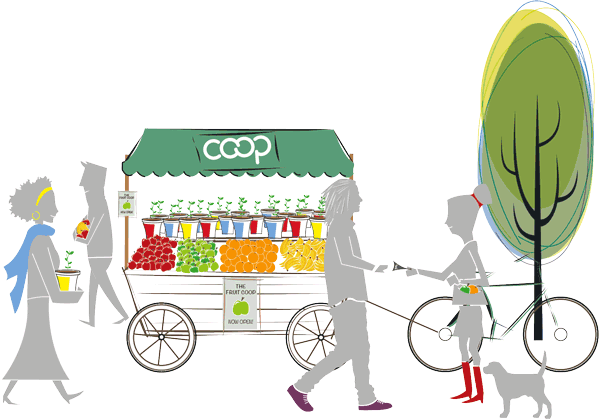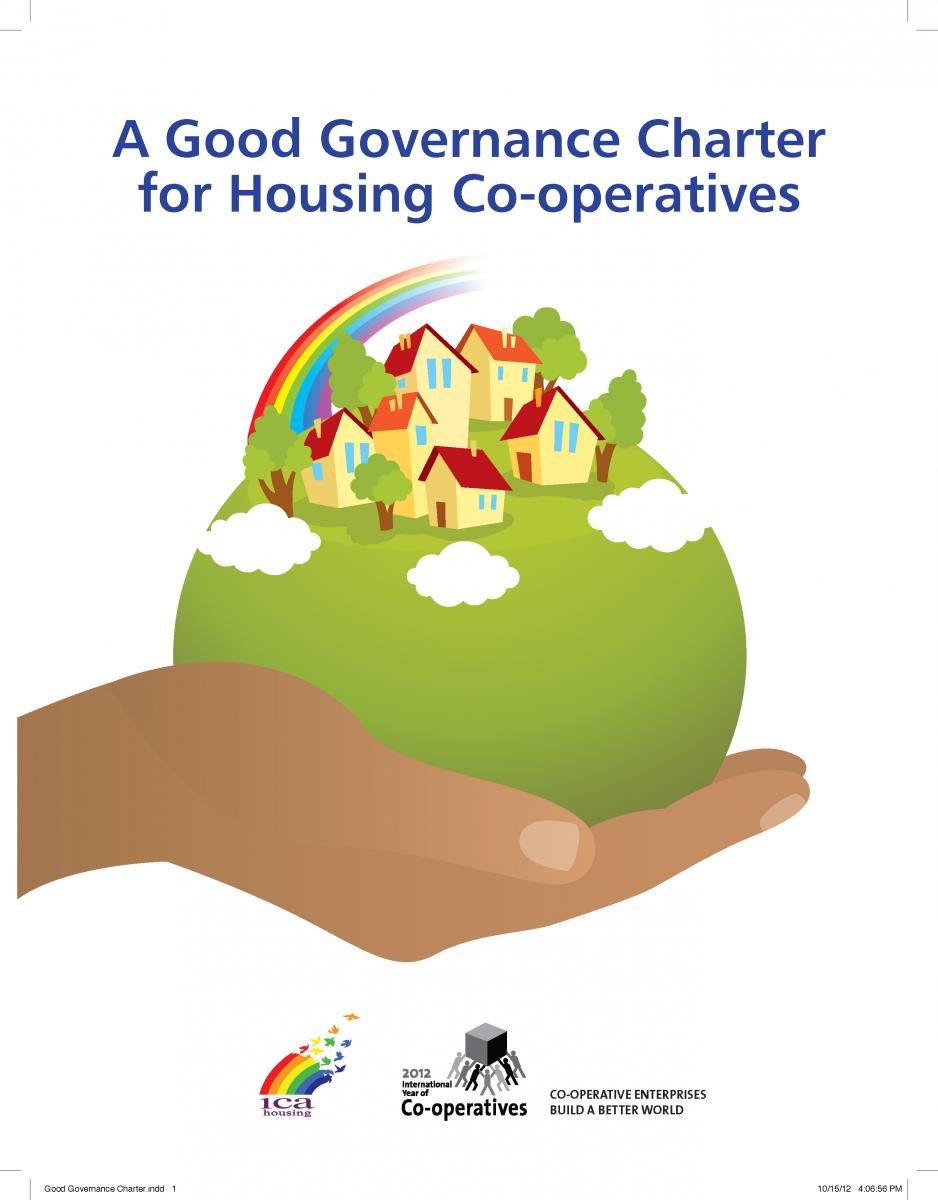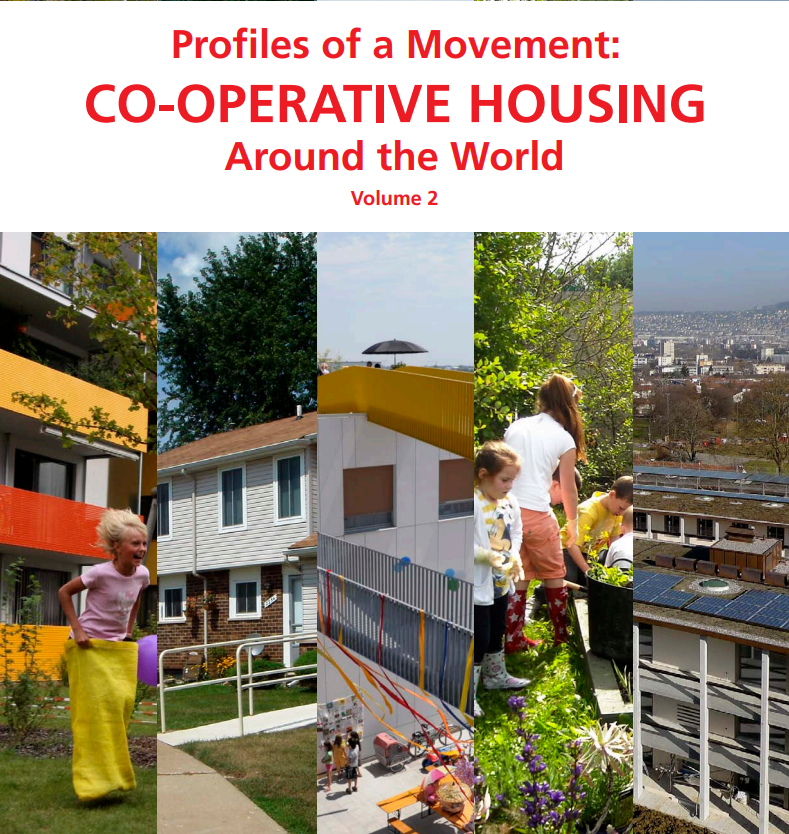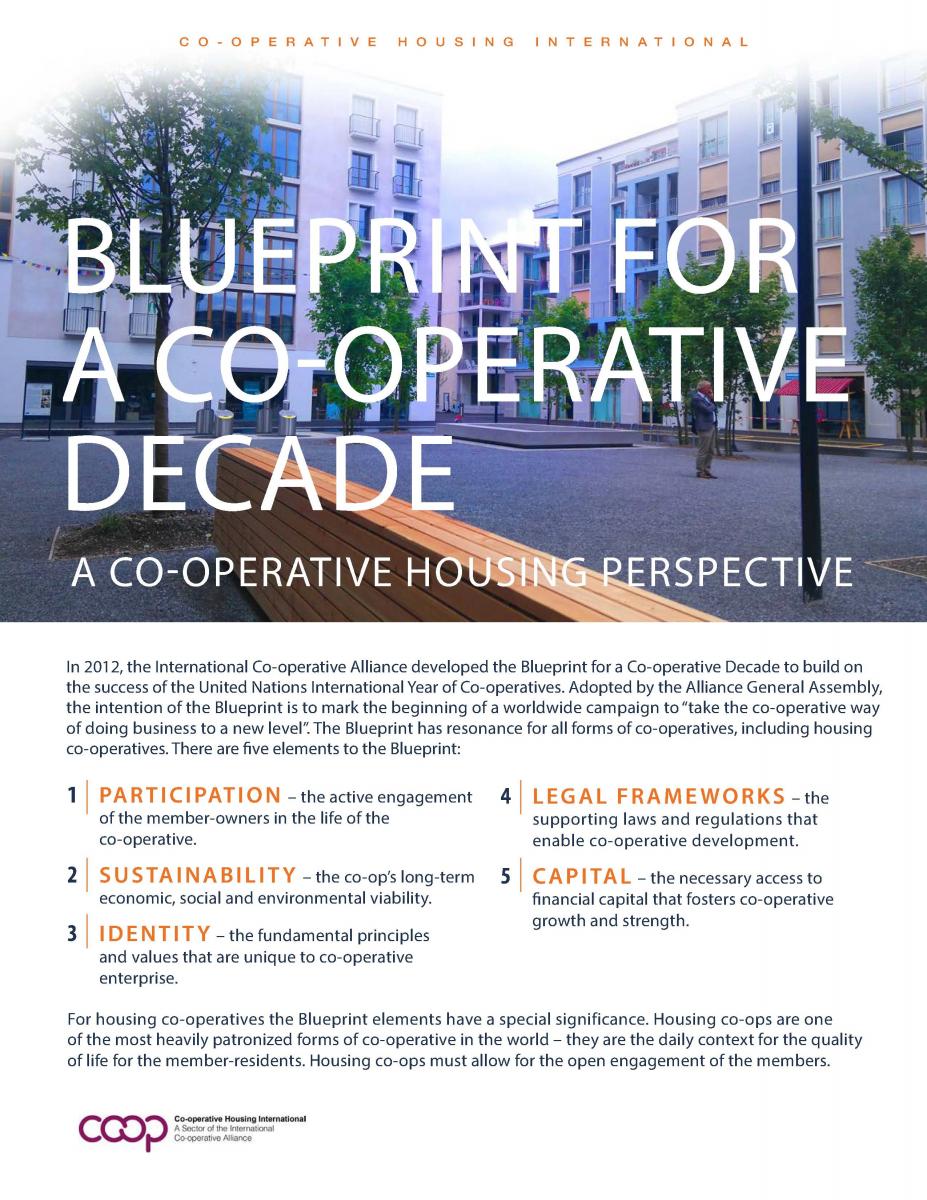About Spain
Cooperative housing in Spain benefits from legal decentralization, which allows for experimentation and adaptation at the regional level, particularly in Catalonia and the Basque Country. Supported by community organizing, innovative financing models, and a rejection of speculative real estate norms, Spain’s cooperative housing movement is carving out a resilient, democratic, and increasingly relevant niche in the national housing landscape.
History
The cooperative movement in Spain began in the mid-19th century, with early consumer cooperatives forming in Catalonia in 1865 and agricultural credit cooperatives in Murcia by 1891. Housing cooperatives emerged in 1911, supported by early legislation promoting affordable housing. The Spanish Civil War and Franco’s dictatorship severely disrupted the sector, reducing the number of cooperatives and placing them under strict state control.
Post-1942 legal reforms, including the establishment of the National Union of Housing Cooperatives in 1957 and the 1959 Economic Stabilisation Plan, spurred growth in subsidised housing co-ops. Government policy heavily favoured owner-occupancy, leading to the near disappearance of public rental housing by the early 2000s.
Housing co-ops peaked in the 1970s, becoming the second-largest cooperative sector by number and the largest by membership. Though deregulation in 1993 and speculative pressures in the 1990s challenged the model, the 1999 Co-operatives Law modernised the sector. Today, housing co-ops remain a vital though modest part of Spain’s housing landscape, with growing interest in non-speculative, use-right models.

Housing co-operative IVM, Rivas Vaciamadrid, Madrid
Housing Policy and Governance in Spain
The transition to democracy in 1978 and the adoption of Spain’s Constitution restructured the country’s housing governance model from a centralized system to a decentralized framework. Today, housing responsibilities are divided across three levels of government:
-
The central government oversees general planning, housing finance strategies, and land policies.
-
The 17 autonomous communities manage regional housing regulations, land use, subsidized housing stock (both owner-occupied and rental), and issue development subsidies.
-
Local municipalities are responsible for urban planning and land management at the city level.
Constitutional Right to Housing
Article 47 of the Spanish Constitution enshrines the right to decent and adequate housing, stating:
“All Spaniards have the right to enjoy decent and adequate housing. The public authorities shall promote the necessary conditions and establish appropriate rules to uphold this right, regulating the use of land in accordance with the general interest to prevent speculation.”
Dominance of Homeownership
Spain has one of the highest rates of homeownership in Europe, with 74% of the population owning their homes. The Spanish economy experienced a financial crisis in the early 2010s, which may have contributed to a slight decrease in homeownership rates.
Housing policy has long favored ownership, particularly for low- and middle-income households, through an intricate system of subsidized loans, developer incentives, and buyer grants.

Housing Co-operative HABITATGE ENTORN, Barcelona
Legal Framework
Spain has no single national cooperative housing law. Instead, housing cooperatives are governed by both national cooperative legislation and regional statutes, depending on the location.
-
National Law: The General Law on Cooperatives (Law 27/1999) provides a framework but defers heavily to autonomous communities.
-
Regional Laws: Each autonomous community (e.g., Catalonia, Basque Country, Andalusia) has its own cooperative law, which defines co-op types, registration procedures, and governance structures.
-
Urban Planning and Housing Laws: Local urban planning regulations and housing laws (such as Catalonia’s Right to Housing Law) significantly impact cooperative housing development.
Legal classification typically distinguishes between:
-
Use-right cooperatives (cesión de uso): Members have long-term, inheritable rights to use their units but do not own them.
-
Ownership cooperatives: Members purchase their homes after construction but organize collectively during the development phase.
Characteristics of Cooperative Housing in Spain
Spanish housing cooperatives differ from country to country but share some key traits:
-
Democratic Governance: One-member, one-vote governance is standard.
-
Affordability: Members build or access housing at cost, eliminating developer profit margins.
-
Diverse Models: Co-ops range from small, self-managed collectives to large developer-led projects.
-
Common Spaces: Many urban co-ops incorporate shared facilities like gardens, laundries, and workspaces.
Importantly, right of use cooperatives are gaining popularity in urban centers. These allow members to access stable, long-term housing without becoming individual owners—thus avoiding speculation and preserving affordability.

La Balma, Barcelona, Spain
Financing of Cooperative Housing
Cooperative housing in Spain is generally financed through a combination of:
-
Member contributions: Typically 20%–30% of the cost.
-
Bank loans: Cooperative members or the co-op entity itself secures financing.
-
Public subsidies: Some regions offer subsidies, land grants, or reduced taxes for cooperatives.
-
Municipal support: Progressive municipalities such as Barcelona and Zaragoza provide public land via long-term leases (right of surface or “derecho de superficie”).
In Catalonia and the Basque Country, specific public-private instruments (such as cooperative-public partnerships) are evolving to support affordable, sustainable co-op developments.
The Cooperative Housing Movement
The 2008 financial crisis and the resulting collapse of Spain’s property bubble reignited interest in cooperative and alternative housing models. In particular, urban middle-class residents disillusioned with speculative real estate began forming co-ops as a way to regain control over housing.
Groups like Sostre Civic (Catalonia) and Entrepatios (Madrid) are gaining attention for their ecological design, affordability, and community orientation. These projects demonstrate how cooperative housing can challenge speculative models and promote social cohesion.
Several national and regional federations support the movement, including:
-
CONFESAL (Confederation of Worker Cooperatives)
-
REAS (Network of Alternative and Solidarity Economy)
-
Habicoop (Catalonia’s housing coop federation)
Moreover, Spain is an active participant in international cooperative housing networks, contributing to the global conversation around affordability, community living, and sustainable housing.
The Cooperative Housing Movement
Founded in 1988, the Confederación de Cooperativas de Viviendas de España (CONCOVI) serves as the national umbrella organization for housing cooperatives in Spain, succeeding the National Union of Cooperatives established in 1957.
CONCOVI unites regional federations, individual housing cooperatives, and representatives from areas without formal federations. Its core mission is to advocate for its members at the national level and to promote social housing in partnership with other social economy actors.
CONCOVI is also a member of CEPES, the Spanish confederation representing organizations within the broader social economy sector.
Resources Tagged "Spain"
Discover how cooperative housing is offering an affordable and sustainable solution to Catalonia's housing crisis. This episode of "Filling the Sink", Catalan news reporter Coralie Moreau explores the origins, models, and benefits of housing cooperatives, featuring stories from La Borda, La Morada, and more. Watch now!Read More
Co-op Stories Europe Video
Sostre Civic is a "right to use" housing cooperative based in Catalonia, Spain. The cooperative promotes an alternative housing access model that is achieved through discovery, counsel, funding research, promotion and management. ...Read More
Financing and Development Europe Presentation
The Cooperative Identity — the shared values and principles that unite cooperatives worldwide — is being revisited for the first time in decades. The International Cooperative Alliance (ICA) has released Discussion Draft 2 of ...Read More
Governance Global Study
The International Legal Research and Analysis Initiative (ILRAI) of the International Cooperative Alliance, coordinated by Cooperative Housing International, provides the first comparative legal analysis of cooperative housing fra ...Read More
Legal Global News Article
L'habitat coopératif offre des logements abordables à long terme, gérés par les résidents, avec des avantages sociaux, économiques et environnementaux avérés. Malgré son impact mondial, ce secteur reste méconnu.Read More
Financing and Development Global Report
Explore public policies supporting cooperative housing worldwide in this comprehensive report. Discover how governments and cooperatives collaborate to create sustainable and affordable housing solutions globally.Read More
Research Global Research Paper
The Commission's final report on Cooperative and Mutual Housing (Bringing Democracy Home) highlighted the need for consideration of the role that cooperative and mutual housing could play in the national housing strategy. The Fina ...Read More
Financing and Development Global Report
Par cette publication, nous souhaitons ouvrir le débat sur le logement en tant que droit fondamental et enjeu métropolitain, en mettant en lumière l’expérience de grandes métropoles et dans l’espoir d’inspirer des idées nouvelles pour aborder cet enjeu absolument fondamental de l’urbanisation moderne.Read More
Advocacy Global
In 2000, United Nations (UN) member states recognised the need to build global partnerships for development and the exchange of expertise as one of the Millennium Development Goals. Across the international development field, part ...Read More
Financing and Development Global
New report: The Capital Conundrum for Co-operatives "The Capital Conundrum for Co-operatives", a new report released by the Alliance’s Blue Ribbon Commission explores ideas and options available to co-operatives that need suitab ...Read More
Financing and Development Global
Financing the development of housing co-operatives is a challenge and more so in time of financial restrictions and uncertainty. CHI members discussed the issue during a seminar held in November 2009 in Geneva. Presentations w ...Read More
Financing and Development Global
The Forest Products Annual Market Review 2013 reports that the development of new refinement processes has led to the production of new and more affordable wood based products such as cross-laminated timber (CLT). The report sta ...Read More
Sustainability Global
Updated Guidance Notes on the Co-operative Principles, edited by David Rodgers, former President of Co-operative Housing InternationalRead More
Governance Global
The ILO views cooperatives as important in improving the living and working conditions of women and men globally as well as making essential infrastructure and services available even in areas neglected by the state and investor-driven enterprises. Cooperatives have a proven record of creating and sustaining employment – they provide over 100 million jobs today; they advance the ILO’s Global Employment Agenda and contribute to promoting decent work.Read More
Legal Global
Cooperative housing offers long-term, affordable homes governed by residents, with proven social, economic, and environmental benefits. Despite its global impact, the sector remains under-recognized.Read More
Financing and Development Europe Report
Student housing cooperatives have become very popular in the USA and many of these housing co-operatives are members of organizations such as NASCO. Unlike a resident who acquires shares at market rates to earn the right to occupy ...Read More
Community Global
The Good Governance Charter for Housing Co-operatives was launched at the ICA Housing Plenary in Manchester in November 2012.It has three parts:A 10-point set of good governance practicesAn interpretive statement for each good p ...Read More
Governance Global
This second volume of Housing Co-operative Profiles focuses on African countries, showcasing the ingenuity and commitment of cooperators working under difficult conditions. It offers insights into the legal, financial, and historical contexts of housing co-ops, aiming to inspire broader adoption of the model as a solution to the global housing crisis.Read More
Community Global Report
The Blueprint for a Co-operative Decade is a worldwide campaign to “take the co-operative way of doing business to a new level”. The five key elements of the Blueprint are participation, sustainability, identity, legal frameworks and capital. The Blueprint is particularly relevant to co-operative housing and the Blueprint interpretation for co-operative housing below explains how.Read More
Governance Global
